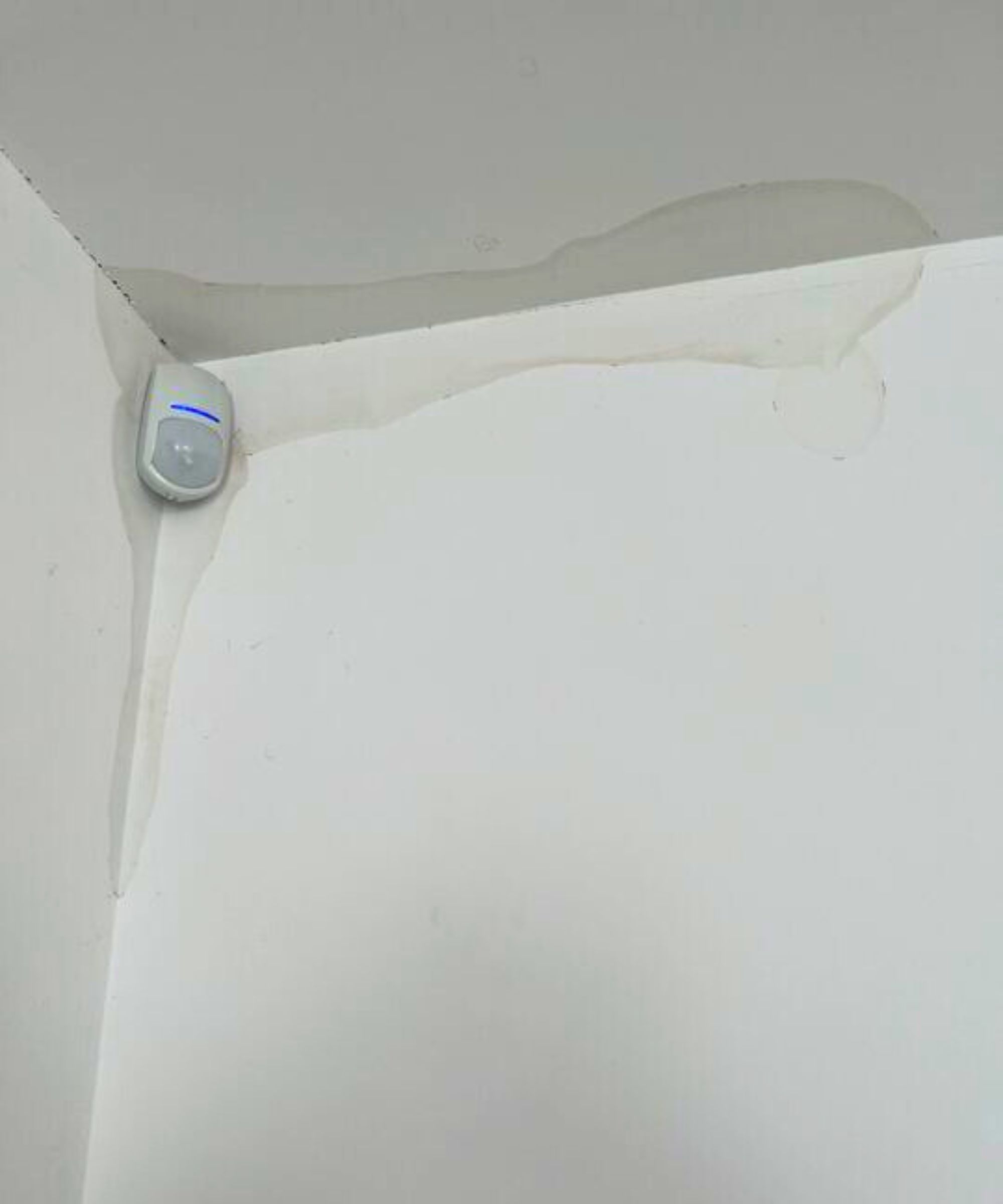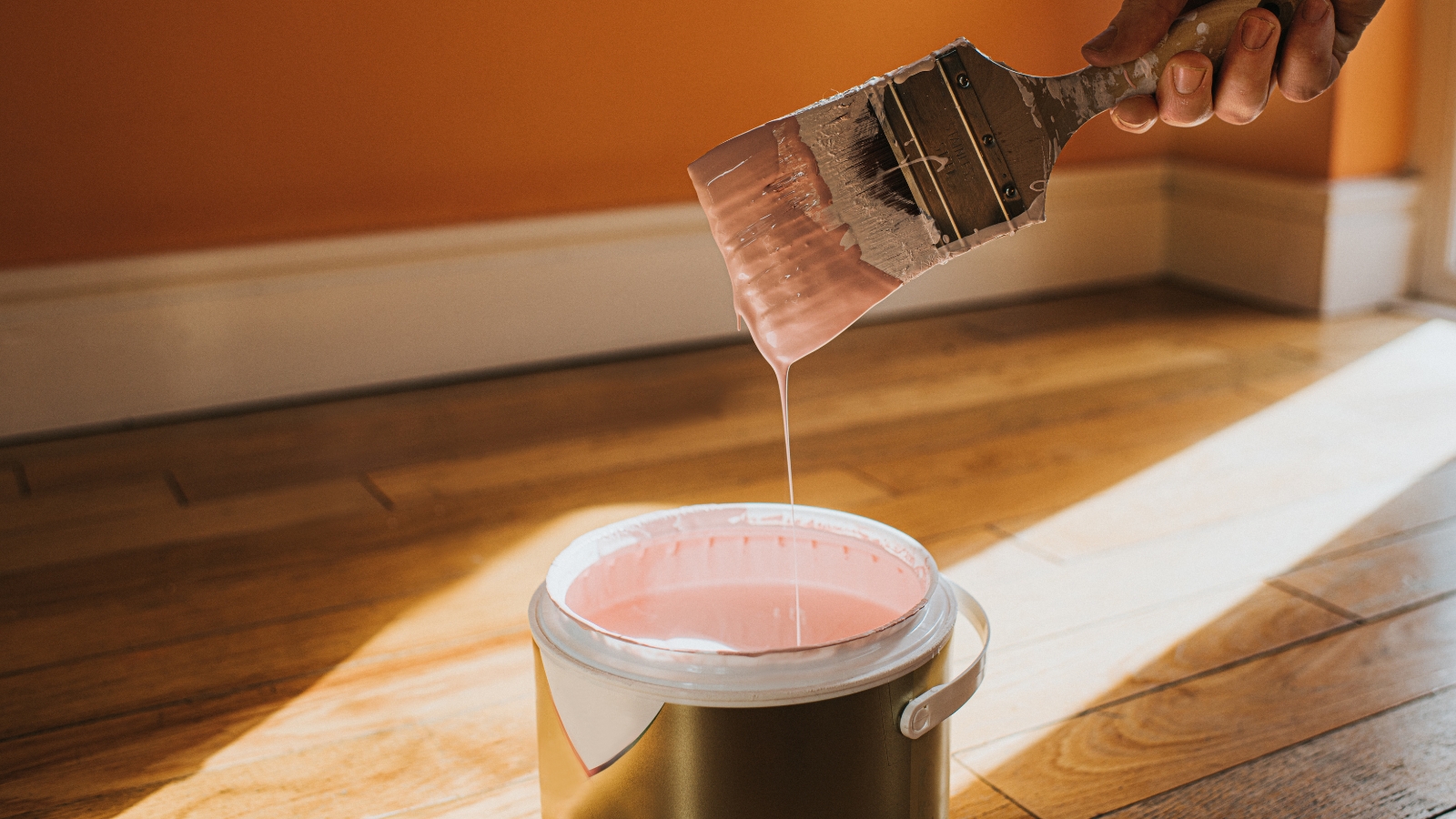How I quickly dried my ceiling after a leak using this expert-approved combination of drying methods
Water leaks leave your home open to mold. I tackled mine quickly using three different methods at once


Is there any event in your home that makes your heart sink more than a leak in the ceiling? Arguably, it's my most dreaded problem as a homeowner and has now happened to me twice.
The most recent leak was on the tail of a particularly tricky few days, and truly the last thing my household needed. That's why I threw everything my plumber told me to do at the stain to dry the water leak out ASAP and avoid the dreaded curse of mold.
And, to my delight, the winning combination of using a fan, dehumidifier and heating in tandem worked a treat. If you have found and fixed a common household leak, the next step is drying out the area impacted as quickly as you can to avert more disaster.
How to dry a ceiling leak quickly
Ceiling leaks bring with it a host of problems. Besides the obvious inconvenience of water drips and stains, the damp creates the perfect environment for mold, mildew and can compromise the integrity of your wall plaster and insulation if not dealt with quickly.
My leak happened very suddenly last week and turned out to be a broken washer on the toilet in the en suite bathroom above our kitchen. Once our plumber had fixed the ceiling leak, I asked him how best to dry the wall out as the plaster had turned chalky from the moisture and the last thing I want in my kitchen is mold.
He told me to ideally use his 'magic trio', which includes air movement, heating and dehumidifying. I set to work as soon as he left.
If your household leaks goes through a ceiling with insulation, make sure to check on that as some types of attic insulation can become a breeding ground for mold if it gets wet and will need extra care and attention.
What I did to dry a ceiling leak in three days
I did not have a dehumidifier so I went onto Amazon and ordered one to arrive next day using my Prime membership. I live in the UK and went for a budget-friendly, small, 1800 ml dehumidifier with a 5/5 star customer rating, a timer and and auto shut-off function, much like the highly-rated and popular BREEZOME 60 OZ Dehumidifier on Amazon in the US.
In the mean time, in the first 24 hours after the ceiling leak in my home, I opened the two radiators in my kitchen, one of which is directly under the leak, and the other perpendicular to it, and set the heating to run at 23° Centigrade, which is 73.4 Fahrenheit. This is as warm as my family and I can tolerate it to run but the hotter you can bear it, the better, my plumber said.
Sydney Archer of Kiser Renovations has over 20 years water damage experience and agrees, adding, 'If you don’t have a dehumidifier or other industrial drying equipment and have not called for professional water mitigation services, set up every fan you have to start drying out the space.'
Sydney warns failure to dry out the space can lead to mold growth in as little as 24-28 hours.

My ceiling leak when I first spotted it
I also kept the kitchen doors and windows closed to stop the heat immediately escaping. I moved my Pelonis tower fan from Amazon onto the dining table and pointed it at the area that was wet. The height of the tower fan helped keep air moving to, and moisture away from the damp patch, and improved ventilation.
As we often dry our laundry in a small space on drying racks in the kitchen-diner, I felt the humidity every time I went into the room. But, until the dehumidifier arrived, I simply opened up the kitchen door for five-minute bursts to reduce the humidity of the space every few hours. It was enough to drop the saturation levels somewhat, without letting all that heat out as in the UK, the temperature was just above freezing when the leak happened.
Sydney adds, 'You should also open all of your windows to help get air moving through the house. Any furniture or other belongings that have water damage should be removed from the house. Some of these items may be able to be saved through professional cleaning services while others may have to be thrown away.’
Once my new dehumidifier arrived, it took just a couple of minutes to set up and I put it on a 24-hour timer. It collected around 10 ml of water an hour from the room and the difference in humidity was palpable.
How this combination worked to dry my ceiling
I was thrilled to feel a noticeable difference from the heating and fan combination in the first 24 hours, but it was when my new best dehumidifier was added to the mix that it really turbocharged the drying out.
Now after 72 hours, the plaster is dry to the touch and I am no longer concerned about the risk of mold, or painting over it soon. Just to be safe, I'm giving it another week of this magic combo to ensure the internal areas have dried too and won't seep through to the surface, as I am planning on using a washable wall paint to go over the water mark and don't want to lock in moisture unwittingly.
Colin Mataei, owner of Clean Air Heating & Cooling advises what to watch out for after a leak such as mine, before painting over. He says, 'Signs a room isn’t fully dry include condensation on windows and a consistent musty smell. Addressing these signs promptly can save on potential costly repairs and improve overall comfort.'
Next, learn about the exterior hot spots for leaks during rainy season and what to do reduce your home's humidity.
Sign up to the Homes & Gardens newsletter
Design expertise in your inbox – from inspiring decorating ideas and beautiful celebrity homes to practical gardening advice and shopping round-ups.

Punteha was editor of Real Homes before joining Homes and Gardens as Head of Solved. Previously, she wrote and edited lifestyle and consumer pieces for the national press for 16 years, working across print and digital newspapers and magazines. She’s a Sunday Times bestselling ghostwriter, BBC Good Food columnist and founding editor of independent magazine, lacunavoices.com. Punteha loves keeping her home clean, has tested and reviewed the latest robot vacuums, enjoys cooking, DIY, and spending weekends personalizing her newly-built home, tackling everything from plumbing to tiling and weatherproofing.
-
 7 expert-approved painting hacks to minimize clean up – to make an already exhausting task easier
7 expert-approved painting hacks to minimize clean up – to make an already exhausting task easierAvoid a backbreaking clean-up after your next painting project with advice from the professionals
By Chiana Dickson
-
 Gwyneth Paltrow's quiet luxury kitchen is so beautiful, we almost overlooked her ultra-smart cabinets – they make the use of 'every inch' of storage space
Gwyneth Paltrow's quiet luxury kitchen is so beautiful, we almost overlooked her ultra-smart cabinets – they make the use of 'every inch' of storage spaceThe Goop founder makes use of dead space in her kitchen with customized cabinetry that reaches to the ceiling, providing ample storage
By Hannah Ziegler
-
 7 expert-approved painting hacks to minimize clean up – to make an already exhausting task easier
7 expert-approved painting hacks to minimize clean up – to make an already exhausting task easierAvoid a backbreaking clean-up after your next painting project with advice from the professionals
By Chiana Dickson
-
 5 beautiful and impactful home improvement projects you can DIY this weekend for under $200 – you don't have to spend big to make a statement
5 beautiful and impactful home improvement projects you can DIY this weekend for under $200 – you don't have to spend big to make a statementFrom painting your fireplace to redecorating your door, little changes can transform and refresh your space
By Ottilie Blackhall
-
 How to paint over stained wood – 6 simple steps expert painters swear by for even, lasting finishes
How to paint over stained wood – 6 simple steps expert painters swear by for even, lasting finishesSkipping even one step will result in chipping paint, experts warn
By Natasha Brinsmead
-
 Can you put wallpaper on textured walls? Experts reveal it is indeed possible with this vital step
Can you put wallpaper on textured walls? Experts reveal it is indeed possible with this vital stepPrep, prep and prep some more for wallpapering success
By Sophie Warren-Smith
-
 8 helpful ways to re-purpose old pillows – from making handy garden kneelers and draft excluders, to cozy pet beds
8 helpful ways to re-purpose old pillows – from making handy garden kneelers and draft excluders, to cozy pet bedsSustainability experts say these bulky items don't have to go to waste
By Sophie Warren-Smith
-
 7 practical things you can do with leftover paint around your home including protecting outdoor furniture, tinting cement and creating touch-up kits
7 practical things you can do with leftover paint around your home including protecting outdoor furniture, tinting cement and creating touch-up kitsPro tips to make the most of those extra supplies
By Andy van Terheyden
-
 Construction pros reveal the 6 mistakes to avoid when hanging drywall for perfect walls and ceilings
Construction pros reveal the 6 mistakes to avoid when hanging drywall for perfect walls and ceilingsThey see these all the time
By Natasha Brinsmead
-
 Why is my wall paint bubbling? Decorators reveal why it happens and how you can fix it
Why is my wall paint bubbling? Decorators reveal why it happens and how you can fix itBubbles look unsightly and might indicate a more serious problem
By Ottilie Blackhall